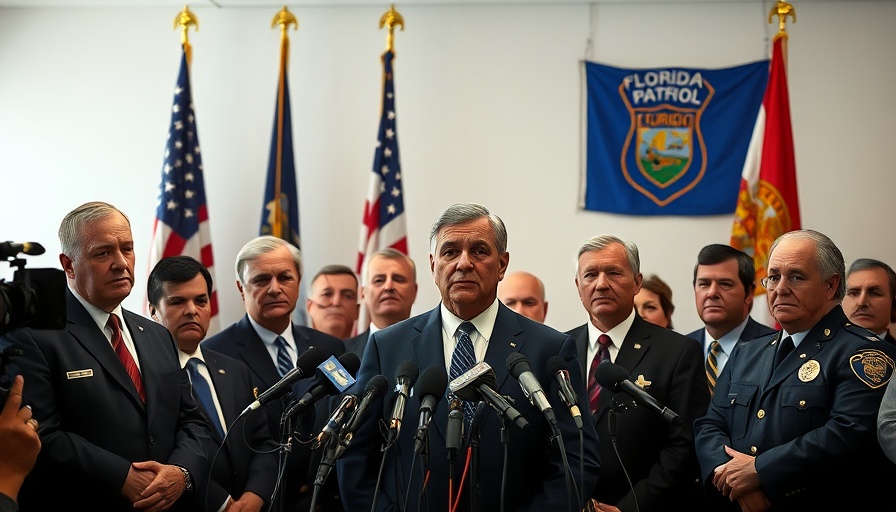
Florida's Stance on Child Predator Prosecution
In recent weeks, a significant stir has emerged in Florida's legal landscape, focusing on the prosecution of child predators. Attorney General James Uthmeier has publicly critiqued Ninth Judicial Circuit State Attorney Monique Worrell for her office's handling of two critical cases of child exploitation in the Orlando area. On the surface, the issues may appear like legal disputes; however, they underline a broader conversation about the responsibility of public officials when it comes to protecting vulnerable populations, particularly children.
The Consequences of Inaction: A Case Study
The specific cases in question involve Kevin Chapman, who was arrested for lewd conduct in a park filled with children, and Thomas Dolgos, who was found in possession of an alarming number of child sexual abuse materials. Despite compelling evidence, Worrell's office declined to proceed with prosecutions. This decision has ignited an outcry from law enforcement officials and community leaders alike, who stress that such leniency not only endangers children but also cripples public confidence in the justice system.
The Role of Leadership in Protective Strategies
Congresswoman Laurel Lee emphasized the importance of stringent measures against violent offenders, reiterating that every decision made within a prosecutor's office directly impacts community safety. As a former prosecutor, she has firsthand experience with the profound consequences of lenient prosecution. It raises an essential question: what level of accountability should public officials maintain when making critical decisions about public safety?
Understanding the Legal Framework
Florida law classifies lewd and lascivious behavior in front of minors as a felony, which underscores the gravity of the offenses in question. Legal experts argue that declining to prosecute such clear cases of child exploitation sends a detrimental message to potential offenders, suggesting that there may be little to no consequences for predatory behavior.
Widespread Call for Change
The reactions to Worrell's decisions have been swift and poignant. Statewide Prosecutor Brad McVay stated that her actions were 'antithetical to our way of law,' asserting that failure to act on these cases endangers society’s most vulnerable. This sentiment echoes among the public and law enforcement alike, where there is a growing clamor for a reevaluation of prosecutorial discretion in cases involving children.
The Larger Context: Community Reactions and Implications
The fallout has not just remained within legal circles. Community members have voiced their concerns, demanding more transparency and accountability from local offices tasked with protecting residents. The alarming nature of these cases has prompted discussions about the adequacy of current leadership and the necessity for community-driven initiatives that focus on safeguarding children from exploitation.
Looking Ahead: Reinforcing Public Safety Protocols
As the debate unfolds, a pressing question emerges: how can communities engage more actively in holding their local representatives accountable? Advocates for child protection are speaking out, calling for revised policies that not only address prosecution but also foster a safer environment for children throughout Florida. There are suggestions of community forums, increased communication with law enforcement, and educational programs targeted at informing the public about child safety.
Conclusion: A Community's Call to Action
Florida stands at a crossroads concerning how it deals with child predators. The recent assertions made by Attorney General Uthmeier reflect a growing frustration with current prosecutorial practices that some claim undermine public safety. For the sake of protecting children, it is vital for constituents to remain vigilant and demand that their leaders prioritize safety over leniency.
As community members, it is our responsibility to advocate for change, raise awareness about the importance of prosecuting child predators, and strengthen the bonds of trust within our legal systems. United, we can ensure that our children are safeguarded against those who wish to do them harm.
 Add Row
Add Row 
 Add
Add 


Write A Comment